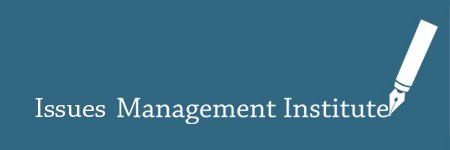Conjecture 7: Are facts a fiction?
Doctrine 2: Facts. After the War, use of facts became the dominant paradigm, meaning was ‘banned’, being perceived as subjective, emotional and irrelevant
Question: are you the preferred supplier of the facts on your organization?
Many people think they have based their opinion on the facts. This is a cool, almost enlightened self-image, a self-image that can withstand some stormy weathers. One recognizes the carriers as they use openings such as: “It’s obviously a fact that…” or “Let’s restrict ourselves to the facts.” To say nothing of people emphasizing they are going to ‘tell the honest story’. Don’t try to persuade them by asking them if it is possible that they have, conversely, based their facts on their opinion…
Read more
If one is of the opinion that plastic packaging is an issue concerning garbage, than one looks for facts relating to this issue. If, however, one is of the opinion that the packaging industry is basically a matter of logistics, transport and distribution, than the facts change accordingly. There are, so it seems, indeed facts, but their selection and meaning are dependent on the issues management of the users. Changes of issues or arranging the issue in another frame render certain facts redundant.
We love to lean on facts. Our argumentation looks much more legitimate and we cannot be accused of being biased. Subjectivity is not exactly popular these days. Facts play an important factor in public information. The balance between fact and meaning still, à tort et à travers even, needs to be in favor of the facts. During the sixties and seventies in the last century the use of facts became the dominant paradigm, meaning was ‘banned’ so to speak. Facts were enthroned and the couple ‘objective information’ was wed. At the same time journalists, just as international law and legal practices, started to strive for ‘objective journalism’ by applying the adversarial principle*. Talking of which: lawyers take facts as their starting point. A suspect was or was not at the scene of the crime after all. And the law knows a maximum penalty for something like murder or theft. Natural scientists are no big fan of the opinion that no pure facts exist either. They work in a facts factory as it were. In that factory they are even the producers of facts. For these professionals, journalists, lawyers and natural scientists, the truth is that facts exist and there is little reason to problematize the existence of facts. And why would they do that at all? Of course it is important if one is to form an opinion on people, organizations and policy, we have to divide facts from non-facts. In order to do that, we have to know which parameters are relevant, but that is not particularly simple. Sometimes it’s hardly doable to divide facts from interpretations, from opinions and thus the aforementioned question whether we base our opinion on the facts or our facts on our opinion: we simply (mostly) do not know this. The enlightened self-image however, is persistent. “Every sane individual refrains from having an opinion on a subject that he doesn’t know the first thing about,” says Dutch political scientist Bob van den Bos.** If this were the case, or should be the case, the world would be a lot quieter. But not just that: we (usually) don’t know the difference between fact and opinion. We are not able to perceive until we are being told that and preferably what we can perceive. We are going to zoom in on that.
Next time: Monkey business
*In the La Grand case concerning two German brothers convicted for murder in the US, the ICJ confirms that the adversarial principle is a human right in International Law. “The Vienna Convention on Consular Relations, Article 36(1)(b), provides that a state trying an alien in a death sentence case must inform the alien of his rights to have his consular authorities informed of the arrest.”
**NRC Weekend, 1 November 2015
Fold in

Leave a Reply